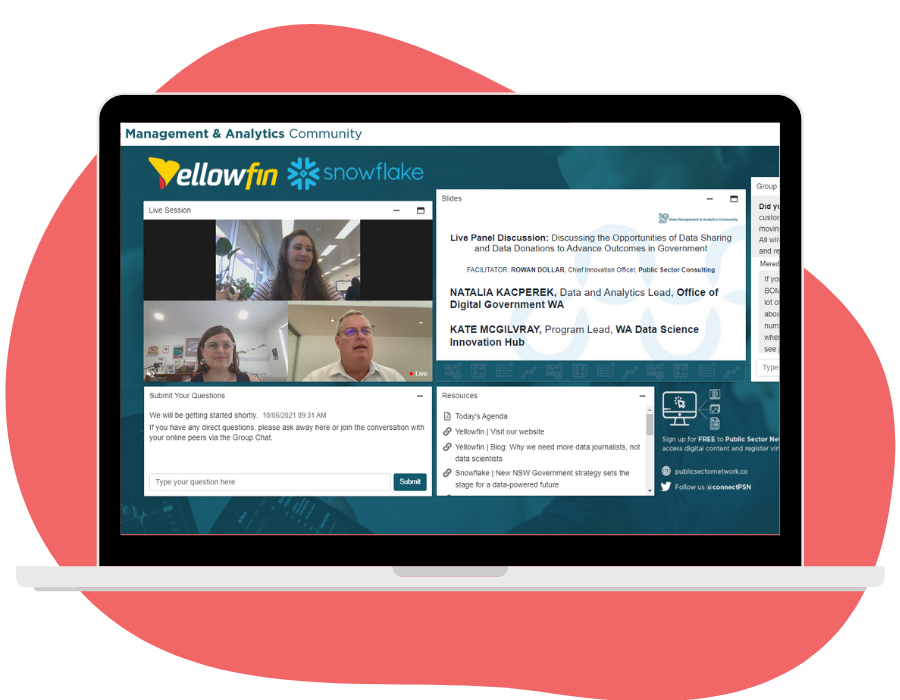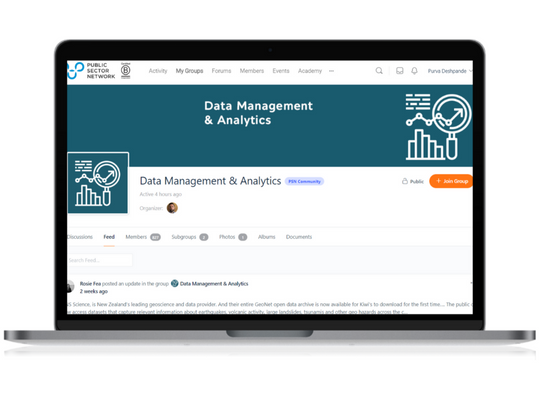
Data Literacy for Non-Data Professionals
1 and 8 November 2023 | 10:00 AM – 2:30 PM AEDT | Online
Training Overview
Building your ability to plan, strategise and communicate with data
Data literacy – the ability to read, analyse, interpret, and communicate with data, is predicted to be the most in-demand skill by 2030. In a recent global survey of business executives, 88% said that it will become as critical as the ability to use a computer is today. This will not come as a surprise as organisations have embraced data-driven decision-making on a large scale. From planning, budgeting, forecasting, and strategizing; data has redefined how businesses operate.
The rising popularity of PowerBI in the public sector is evidence of this shift. Where previously one would have to rely on a data analyst to interpret their data from them. Now a growing number of public servants, regardless of their background could (in theory) be the analyst. Technology is democratising data!
Despite these positive strides, the biggest gaps are not technology related. The challenges that most public sector professionals face are: identifying what problems your data can solve; discerning the difference between good data and bad data, and understanding what questions you can ask of your data. This online workshop has been designed to address these concerns and more. Through a mix of presentations, activities, and discussions non-data professionals will build skills and insights to work more effectively with data.

Who Should Attend
This course is designed for public sector professionals who lead teams and projects, including multi-disciplinary teams. Particularly those seeking to become better at data-driven decision-making and story-telling including:
Project Managers, Project Officers, and Project Leads
Specialists in Forecasting, Planning, Performance and Monitoring
Department Heads and Team Leaders
Learning Outcomes
Identify and define relevant data, aligning it with organisational goals and challenges.
Develop a structured approach for making data-driven decisions, including forecasting, planning, and extracting valuable insights.
Assess data reliability, accuracy, and relevance to ensure confident interpretation and analysis.
Understand and address ethical, privacy, and security concerns associated with data handling and use.
Meet Your Facilitator

RABIA KHAN
Epidemiologist, Data Whisperer, Change-maker
Data Action Impact
With 20 years’ experience working across the world, and in both government and not for profit sector, Rabia Khan been solving complex problems using data. She has worked on issues like COVID-19 pandemic, antibiotic resistance, mental health, poor housing, air pollution, and even making our complex public systems work better.
Rabia has worked in big organisations like the OECD, NHS England, NSW Health, Queensland Health and The George Institute to create meaningful change across the world. She is also a board member of TUFH- an international organisation that fosters equitable community-oriented services and education with the goal of improving health locally and globally.
Rabia has found her ‘sweet spot’ in using data to help people to do more good, to make better decisions, and to increase their impact through meaningful change. She works with people to solve problems using data. She also builds expertise by sharing her skills and knowledge and telling stories that stick.
Key Sessions
Introduction and Definitions
- What is Data literacy and what does it mean?
- Data literacy and why is it important
- Understanding key terms and definitions
- Learning how good data can learn to better outcomes
- Understanding Data
- What are the characteristics of data
- Exploring different data types and sources
- Identifying what data you need
Working with Data
- Working with Data
- Identifying good data
- Learn how to restructure data
- Common statistics used to describe data
- Roles and Responsibilities
- Key data roles in an organisation
- Responsibilities and how they differ
Data Visualisation and Story Telling
- Data Visualisation
- Transform data into meaningful graphs, tables, and dashboards that convey compelling evidence
- 5 principles of effective data visualisation and learn how to apply them to your work
- Explore different visualisation tools and frameworks
- Telling a story with your data
- Unlock the power of data storytelling to engage stakeholders and drive better decisions
- Leverage comprehensive analysis to inform and optimize team performance
- Boost your confidence and impact in presenting data-driven reports
Privacy and Ethics
- Data Privacy and Ethics
- Understanding data privacy
- Guardrails and rules to improve privacy
- Behaviours and systems that ensure greater privacy
- Creating a Data-Driven Culture
- Communicating the importance of data literacy
- Encouraging and promoting a behaviours boost data quality, privacy and data-driven decision making
- Next Steps
Registration
Final Price
$1195
per person + GST
Interested In Learning More?

